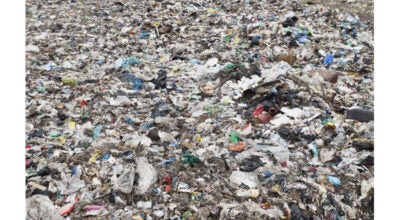Treasurer still wants waste fee removed
Published 6:32 pm Tuesday, March 30, 2021
|
Getting your Trinity Audio player ready...
|
For the second year in a row, Southampton County Treasurer Cynthia Edwards is asking that the county’s $200 annual solid waste fee be eliminated.
When Southampton enacted its fee in 2012, it was paying the Southeastern Public Service Authority $145 per ton to send trash from three SPSA transfer sites in the county to the regional landfill in Suffolk. According to the recorded minutes for the Board of Supervisors’ May 23, 2012, meeting, Jerusalem District Supervisor Dr. Alan Edwards — now chairman of the board — said the county’s fee would drop “a like percentage” as SPSA’s fee came down.
But it hasn’t, even though SPSA now only charges $57 per ton.
In 2013, the first year Southampton billed its residents for solid waste, the county averaged 694 tons of waste per month. At $145 per ton, that translated to roughly $1.2 million owed to SPSA for the year. In 2020, it cost the county less than half that amount — $573,876 to be exact — to send 839 tons per month to the landfill at $57 per ton.
SPSA plans to increase its municipal tipping fee back up to $61 per ton for fiscal year 2021-2022 to begin saving for the construction of an overpass at its regional landfill. But even if the county’s monthly tonnage were to increase to 900, the cost would still be well below what the county collects in solid waste fees each year. Historically, with just over 5,000 households paying the fee, resulting revenues have been just over $1 million annually.
So, where have the savings gone?
According to County Administrator Mike Johnson, the county isn’t actually seeing a surplus from leaving its fee in place. The roughly half-million dollar cost to transport waste from SPSA’s transfer stations to the regional landfill accounts for less than half of what the county spends on refuse collection, he said. For the current fiscal year, the county has budgeted an additional $838,241 for curbside trash pickup and hauling the waste collected at each of the county’s 14 refuse centers to the SPSA transfer stations outside of Franklin, Ivor and Boykins.
When combined with SPSA’s cost to take that waste from its transfer sites to the landfill, the county’s total cost for managing solid waste runs roughly $1.4 million annually. The county’s solid waste fee covers roughly 72.25% of this cost, with the remainder coming out of the county’s other sources of revenue, like tax dollars.
According to county data, the revenues derived from the solid waste fee have never exceeded the total cost of operating the county’s solid waste program.
“The fee was implemented in 2012 to avoid continued use of the county’s reserve fund to cover the rising cost of managing solid waste,” Johnson said. “When the cost of managing solid waste began to increase precipitously in 2010 after the SPSA tipping fee went to $170/ton, it was initially thought to be a short-term problem, and the Board attempted to manage it by utilizing reserve funds rather than raising taxes. As the reserve began to dwindle and the cost didn’t come down, they recognized that this strategy was unsustainable and additional revenue was necessary.”
Having an adequate cash balance in the county’s reserve is necessary to meet seasonal shortfalls and secure and maintain the county’s credit rating, Johnson added. Conventional wisdom, he explained, is for local governments to maintain reserve fund balances of at least 10% to 20% of their operating budgets. The end-of-year general fund reserve balance as of June 30, 2020 was roughly $8.8 million — or 27.7% of budgeted expenditures.
Edwards, who took office as treasurer in November 2019, previously brought the matter up during a special presentation she made to the Board of Supervisors April 28, 2020, meeting.
On March 23, she again spoke on the matter at a public hearing intended to solicit input from residents before the county drafts its proposed 2021-2022 budget.
She argues a flat fee of $200 for solid waste disproportionately impacts the county’s lower-income residents. Property and real estate taxes, on the other hand, are assessed as a percentage of what each person owns.
As of this time last year, the county had collected 96.4% of all personal property taxes owed, but only 75.6% of all solid waste fees, she said. The state also allows a longer timeframe — five years as opposed to three for solid waste bills — for localities to collect what is owed before those debts must be written off as uncollectible.
“Discontinuing the solid waste fee and increasing personal property by a small percentage would give us an additional two-year timeframe, if necessary,” Edwards said.
The board took no action on the matter that evening.





